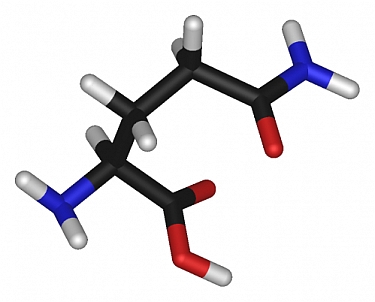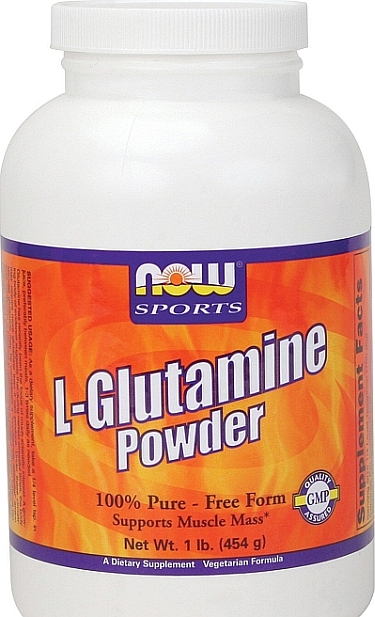Glutamine: One Supplement, Lots of Benefits
Some supplements really do a lot for the time, money and trouble you go to take them. We’ve recently been discussing a few of them here such as alpha lipoic acid and coconut oil. Another good one is the amino acid L-glutamine. Strictly speaking, glutamine supplements are not usually clinically or nutritionally essential, but there are limits to how much the body can produce and how much can be obtained from food. So since glutamine supports so many critical functions and structures in the body – muscle mass, immune function, pH balance and many others – millions of people use daily glutamine supplements to support overall health by ensuring that there’s there’s plenty of glutamine to go around at all times.
When nutritional science was still a ‘new’ science, and scientists were working out which nutrients were essential and which were not, amino acids were classified in that way, too. Amino acids were considered to be either non-essential (if they could be made by the body) or essential (if not). As our understanding of amino acids and nutrition became more sophisticated, it was revealed that some amino acids become essential only in certain circumstances. In these special circumstances, typically advanced disease states, or serious injuries such as burns – the body’s demand for glutamine outstrips the amount that can be made or obtained from food. These amino acids – one of which is glutamine – are now known as conditionally essential amino acids.

Schematic model of glutamine molecule
Yet the majority of people using glutamine supplements are not in an advanced disease state or recovering from a serious injury, and you don’t have to be either to take advantage of the broad ways in which glutamine supports overall health.
As an amino acid, glutamine is arguably the most important. It’s in constant demand, used to support structures and functions in almost every part of the body. Glutamine is the most abundant amino acid in the body, stored primarily in your muscles. Muscle tissue is broken down whenever glutamine demand exceeds the body’s supply, one reason why bodybuilders are among the most fervent users. Wherever it’s used in the body, glutamine generally serves one of two possible purposes; as a fuel source to support bodily functions or as a building block to support the growth and maintenance of body structure.
When you examine the widespread functions of glutamine, and the many ways it supports health, keep in mind that there are limits to how much glutamine can be made or obtained by the body. There’s no easy way to ascertain one’s ‘glutamine’ status, so people use glutamine supplements as a kind of insurance to make sure all of these vital processes are fully supported, and minimizing the probability that valuable lean body mass and muscle are sacrificed to meed demand.
- Glutamine supports muscle mass and strength by helping to build, repair and maintain muscle tissue. Glutamine is a staple supplement in the regimens of bodybuilders and athletes of many types.
- Glutamine supports the immune system because it’s used as a preferred fuel source to power immune cells like lymphocytes.
- Glutamine also supports the immune system by supporting intestinal health. Intestinal cells called enterocytes used glutamine as both a fuel and to maintain structural integrity. This enhances nutrient absorption and decreases the amount of non-nutritive material that enters the system, provoking a immune response and waste of immune resources.
- Glutamine supports liver health and detoxification because it’s needed to manufacture glutathione peroxidase, among the liver’s most powerful antioxidant and detox enzymes.
- Glutamine supports pH balance because it’s used to form bicarbonate ions that buffer acidity within and outside cells.
- Glutamine fuels brain cells and supports nervous system function by scavenging the toxic ammonia that accumulates from normal nerve cell activity.
- Glutamine also supports brain function through its role in the production of neurotransmitters like GABA. GABA is itself a supplement, used to support relaxation and calmness.
- Glutamine has been shown to support HGH (human growth hormone) release.
- Posted in Miscellaneous
- No Comments





